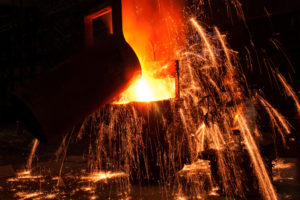 Fire safety in developing countries is something that is becoming more and more prevalent in the news these days, particularly due to some high profile stories such as those detailing garment factory fires in Bangladesh and Pakistan, which caused a total of approximately 1,200 deaths as reported in The Guardian. Similar to the 1911 factory fire at the Triangle Shirtwaist facility which caused sweeping changes to regulations for fire safety, more must be done in these developing countries to ensure safety is always of the utmost priority.
Fire safety in developing countries is something that is becoming more and more prevalent in the news these days, particularly due to some high profile stories such as those detailing garment factory fires in Bangladesh and Pakistan, which caused a total of approximately 1,200 deaths as reported in The Guardian. Similar to the 1911 factory fire at the Triangle Shirtwaist facility which caused sweeping changes to regulations for fire safety, more must be done in these developing countries to ensure safety is always of the utmost priority.
If we look deeper into the 2 recent fires in garment factories, shocking reports detail the lack of basic safety provisions available. Barred windows, there to ensure safety of stock, were party to the lack of escape routes for these workers, and at Tazreen Fashions: some staff dismissed the fire alarm as a false alarm, and stopped some workers from leaving straight away.
As more and more stories like these hit the press, its only natural that the Fire Protection Industry will see a rise in numbers for export orders. Many garment factories in these developing countries are under massive pressure to conform to safety standards by larger retailers such as Wal-Mart and Shop Direct, as no retailer wants to have their name linked to a factory that is unable or unwilling to provide adequate safety training, or Fire Protection and Fire Detection equipment to protect the people who work there.
It’s also very clear that the instruction manuals and installation instructions that accompany exported Fire Protection and Fire Detection equipment will need to be perfectly translated to ensure no casualties from fires could have been prevented with better translation of Fire Protection documentation. Professional translation services must give accurate and detailed translations in order to make sure that these manuals are not misunderstood; otherwise all may be in vain.
It’s not only garment factories that are suffering though. Fire safety in developing countries affects different industries without prejudice: in August last year, Nairobi airport suffered huge damage due to a fire that raged out of control for some time, before finally being extinguished. It was thought that Fire Crews took 2 hours to arrive at the airport, by which time it had ravaged much of the terminal building.
Only well trained staff who understand exactly what they need to do in the event of a fire- those who have had their training in their native language, will be far more likely to be able to follow those instructions in the training manuals and get out of the building safely. If an employee, or technician is unable to utilise the equipment designed to save lives, due to misunderstanding of translated technical terms, then no matter how many alarms, or other Fire Protection items are in the building, there will be no point in having them.
To find out more about our Translation Services just call us on
+44 (0)1245 216 930 or email info@ttcwetranslate.com for a free no-obligation quote or arrange a meeting and see how TTC can work with you.
If you’re looking to expand your market and export Fire Safety equipment to these developing countries, then gaining a professional translation of accompanying operating or installation instructions is vital. Here at TTC wetranslate, we can ensure that all of your detailed information is accurately translated into the language of your destination country, ensuring the best practice when using your equipment. If you’ve already received a quote, you can use our Quote Match service, which will ensure you get the best possible quote for the most accurate translation.

